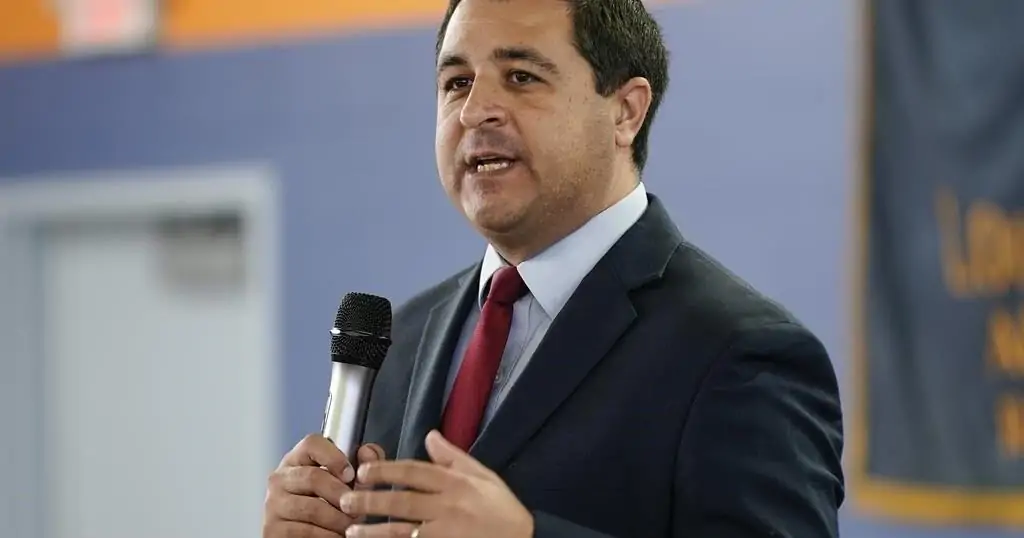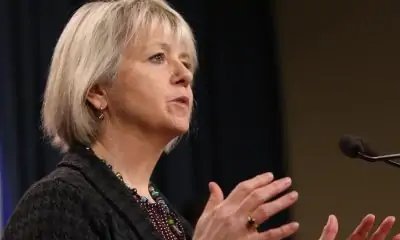CALGARY – Worries over escalating tensions in the Middle East and their potential to cause oil price disruptions hung over day one of a major energy sector conference in Calgary.
On Tuesday, Israel’s military said Iran had fired missiles into the country. Earlier in the day, a senior U.S. administration official warned of “severe consequences” should a ballistic missile attack take place.
Global oil prices jumped on the news — the price of U.S. benchmark West Texas Intermediate was up nearly five per cent, topping US$71 per barrel midday on Tuesday. It ultimately closed up US$1.66, or 2.44 per cent, to US$69.83 per barrel.
At the Energy Disruptors: Unite conference, which kicked off Tuesday and is one of the largest annual energy sector conferences in Calgary, the day’s geopolitical developments were not far from delegates’ minds.
Calgary is home to the corporate head offices of Canada’s oil and gas sector, where fortunes rise and fall with commodity prices. Big companies make budgets and production plans based on short- and long-term assumptions about where the price of oil is heading.
“The escalation is obviously unsettling,” said Peter Tertzakian, a Calgary-based energy economist and founder of the ARC Energy Research Institute, in an interview on the sidelines of the conference.
“Nobody wants to see highly volatile prices, and certainly no one wants to see conflict.”
Oil prices have been weighed down this fall by lower-than-expected Chinese demand and uncertainty around OPEC’s (Organization of the Petroleum Exporting Countries) plans.
But Tuesday’s events in the Middle East had markets rattled with fresh fears of potential supply outages if the conflict between Iran and Israel escalates or expands into the broader region.
Tertzakian pointed out one-quarter of the world’s oil supply travels through the Strait of Hormuz, which lies between Iran and Oman. The possibility that Iran could cut off oil shipments through the strait is something that could significantly shake up the global economy, he said.
“We don’t know if that’s going to happen, but it’s certainly something the oil markets are very concerned about,” Tertzakian said.
Al Salazar, director of intelligence for energy data and analytics provider Enverus, said Tuesday’s surge in oil prices is thus far nothing more than a knee-jerk reaction and could settle out within a day or two if there is no physical disruption to global supplies.
“It’s basically trading on fear right now. You know, nothing has actually changed in terms of supply-demand balances yet,” Salazar said in a phone interview.
But he added that oil prices have been excessively bearish in recent months, so an event like Tuesday’s missile attacks could be enough to cause traders to rethink their longer-term stances.
“Really, there hasn’t been any type of geopolitical premium priced in on the price of oil recently,” Salazar said.
“This may shake things up a bit.”
In a presentation at the conference, former Prime Minister of Finland Sanna Marin said she believes the world is living in a dangerous time, and that Western democratic countries are failing to realize that the whole existing global order is under threat.
“We are seeing war in Ukraine, war in Europe today, we are seeing more restlessness in the Middle East, and there is more to come,” Marin said.
“I think people have the tendency to want to believe that maybe things will go smoothly, maybe we will go back to normal. But I’m telling you right now that there’s no normal to go back to,” she added.
“The world has changed, and it’s changed radically.”
The escalation of tensions between Iran and Israel resulted in Wall Street retreating Tuesday from the all-time records it had set the day before. The S&P 500, the Dow Jones industrial average and Nasdaq all lost ground over market jitters.
But the energy-heavy Toronto Stock Exchange closed in positive territory, as higher crude prices lifted this country’s oil and gas producers. The S&P/TSX capped energy index gained more than three per cent on Tuesday.
The latest uncertainty in the Middle East also comes at a time when central banks around the globe are beginning to cut interest rates in the face of easing inflation.
But the rampant inflation of the past several years was driven in large part by sky-high energy prices, so a wider conflict in the Middle East that drives oil prices higher could once again put pressure on consumers.
“The reality is that oil runs through the veins of the global economy still,” Tertzakian said.
“Inflation is very much tied to the price of oil, so if we see prices spike above US$75 to US$80, then you’ll probably see some inflation work its way back into the system.”
— With files from The Associated Press
This report by The Canadian Press was first published Oct. 1, 2024.



















